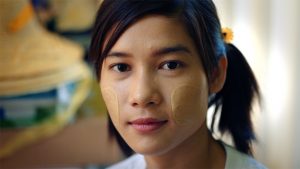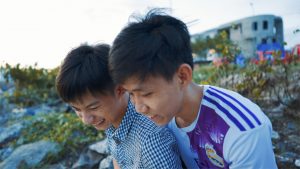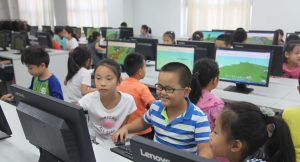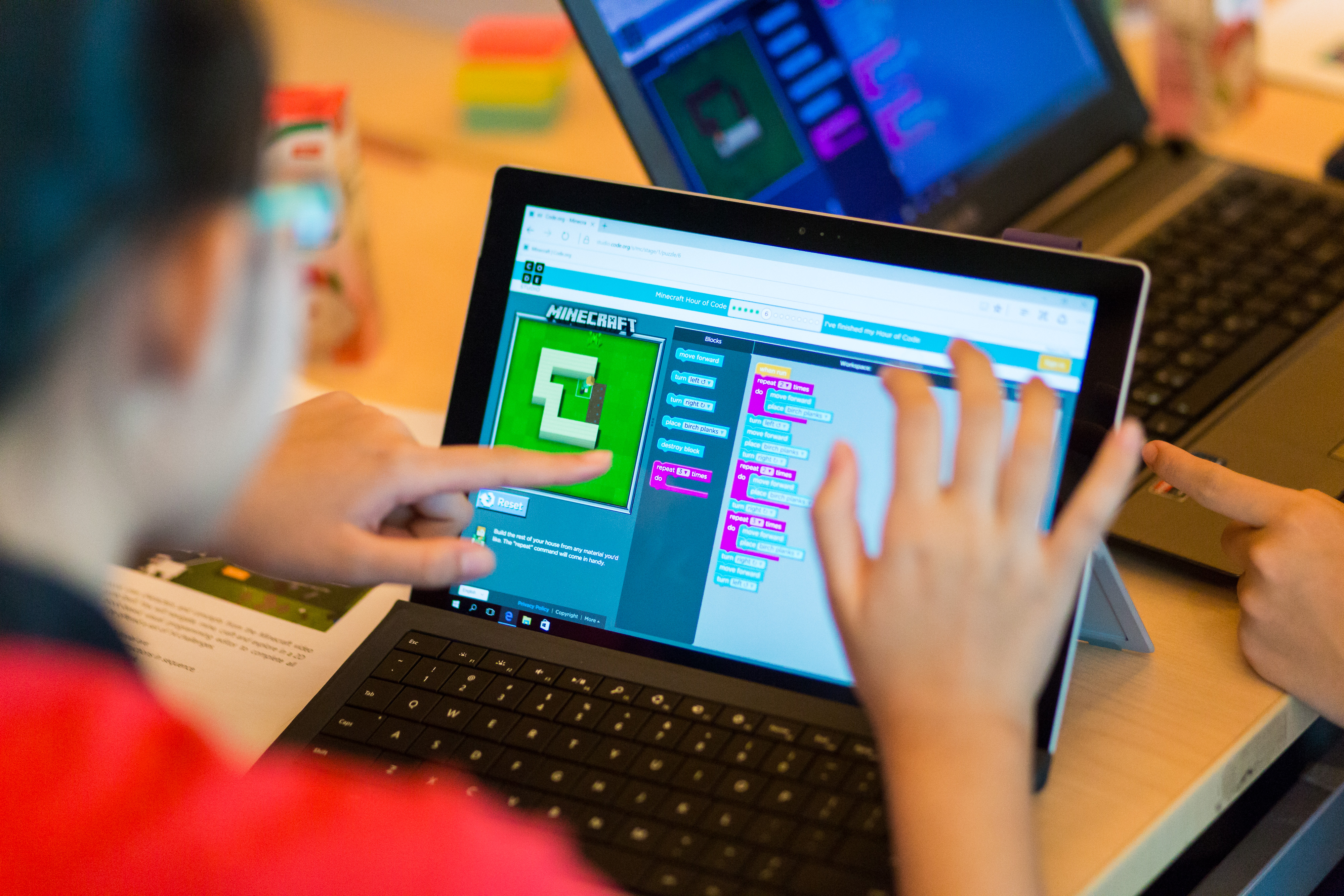As part of its ongoing support for Code.org’s Hour of Code, Microsoft will be directly conducting over 30 Hour of Code events in Asia to encourage youth to try and pursue computer science and get future ready. This is the third consecutive year that Microsoft is part of this global call to action for students to spend an hour learning the basics of coding, during Computer Science Education Week (4 – 10 December).
Hour of Code is an opportunity for educators and institutions to let students experience the basics of coding through free tutorials conducted by partners. The movement started as a one-hour introductory activity to computer science and is designed to demystify “code”.
This is an important milestone in Microsoft’s push to help the next generation be future ready. Students today face a future workforce unlike that of any previous generation due to the advancement of technology. Students who gain knowledge in science, technology, engineering, and mathematics (STEM) will have tremendous advantage as they embark in the increasingly digital world.
A new Minecraft Hour of Code tutorial, Hero’s Journey, was launched in November to support this year’s Hour of Code activities, where educators, parents and students can spend an hour to learn about core coding concepts like loops, debugging, and functions, using a visual block-based editor.
Getting the Next Generation Future Ready
Technology is transforming our society and economy at an unprecedented rate, putting new demands on our current workforce as well as on youth who will soon join that workforce. According to a report by the World Economic Forum, 65 percent of children who enter primary school today will work in completely new jobs that do not currently exist.
With the rising digital economy and the nonstop pace of technological evolution, Microsoft, together with our partners, have an imperative to prepare young people to pursue careers that are in demand. Beyond computing jobs, computer science education also provides critical skills that are now required in any field – from music and fashion, to manufacturing, health care and transportation.
“Computer science is about much more than learning to code. It teaches creativity, computational thinking, analytical reasoning and complex problem solving – skills that are essential for the jobs of today and tomorrow,” said Dr. Daiana Beitler, Philanthropies Lead, Microsoft Asia. “From basic computer literacy to computer science education, digital skills can open the door to greater economic opportunities.”
In Asia, Microsoft is marking the Hour of Code with over 30 activities in collaboration with local nonprofits and academic partners for all students, in particular those from underserved communities to make sure no one is left behind.
Those events include:
- Hour of Code programs meant to spark girls’ interests in STEM, as in the Philippines where Minecraft tutorial sessions were recently conducted by Microsoft during ‘It’s A Girl Thing’ festival in Manila, and in Taiwan that organizes Coding Angels, an Azure Machine Learning bootcamp where female varsity students can learn about developing on our cloud platform.
- Hour of Code programs designed specifically for students with special needs, in Korea, Malaysia, and Singapore.
- A relay of Hour of Code events hosted by nonprofits partners and Microsoft Student Partners in rural areas, in China, India and Vietnam.
- Train the trainer sessions for educators followed by Hour of Code events in partnership with schools and government, in Hong Kong, Japan, Korea, Myanmar, Philippines, and Sri Lanka.
Making Computer Science Education Fun and Creative with Minecraft
Microsoft is launching its new Minecraft tutorial, Hero’s Journey. Working with Minecraft game designers, computer science educators, and Code.org’s learning designers, this program uses game elements loved by so many young people to present computer science concepts in a fun and creative way.

In this edition a new character, Minecraft Agent, is introduced, along over 10 new challenges that teach core coding concepts like loops, debugging, and functions. Minecraft’s open sandbox environment – where there are minimal character limitations placed on the players so that the character can roam the virtual world at will – enables students to shape their own virtual world with only their own creativity as the limitations. This game not only enables coding to become one of the most creative activities a student can do, it also ignites students’ innate ingenuity and makes learning fun and collaborative.
To date, nearly 70 million people around the world have been using Minecraft tutorials to learn the basics of coding.
For educators interested in running Hour of Code sessions in schools, resources are available here, including facilitation guides, quick tip sheet and PowerPoint slides.
Empowering individuals in Asia with Future Ready Skills
In addition to the momentum created by Hour of Code activities on Computer Science Education Week, all year long, Microsoft is developing comprehensive digital skills programs in Asia together with nonprofits, policy makers and community leaders.

In Myanmar, Microsoft is supporting “Tech Age Girl”, a program run by Myanmar Book Aid and Preservation Foundation (MBAPF). This initiative identifies promising youth female leaders and provides them with essential leadership and computer science skills to get future ready for the jobs of the 21st century.
 In Vietnam, the nonprofit REACH, in partnership with Microsoft, is running coding classes that provide technical training to the nation’s most vulnerable youth, including those with disabilities. The training involves intensive ICT training, job placement and six months of coaching to support students during their transition to employment.
In Vietnam, the nonprofit REACH, in partnership with Microsoft, is running coding classes that provide technical training to the nation’s most vulnerable youth, including those with disabilities. The training involves intensive ICT training, job placement and six months of coaching to support students during their transition to employment.
 In China, computer science educator Xu Xinyan, and a Microsoft China education partner are planning to bring KODU – a 3D, visual programming language designed to introduce children to coding concepts in an intuitive manner – to more than 150 schools and 200 IT instructors nationwide. This initiative will reach 30,000 students through forums, training sessions, and video recordings.
In China, computer science educator Xu Xinyan, and a Microsoft China education partner are planning to bring KODU – a 3D, visual programming language designed to introduce children to coding concepts in an intuitive manner – to more than 150 schools and 200 IT instructors nationwide. This initiative will reach 30,000 students through forums, training sessions, and video recordings.
“Today, billions of people are at risk of being excluded from the social and economic opportunities of the future due to a lack of knowledge and skillsets. This disparity is most pronounced in marginalized and underserved communities,” shared Dr. Beitler.
“At Microsoft, we believe everyone should have the chance to experience the benefits of technology and to participate in the creation of the new digital economy. Together with like-minded partners, we are working towards a future where every person – regardless of age, gender or background – has the skills and opportunity to succeed in the digital future.”
To find out more about Microsoft Philanthropies’ initiatives in Asia, visit https://news.microsoft.com/apac/philanthropies-asia/
You can also read Dr. Beitler’s blog post on Unlocking Asia’s Digital Future with 21st Century Skills here.





